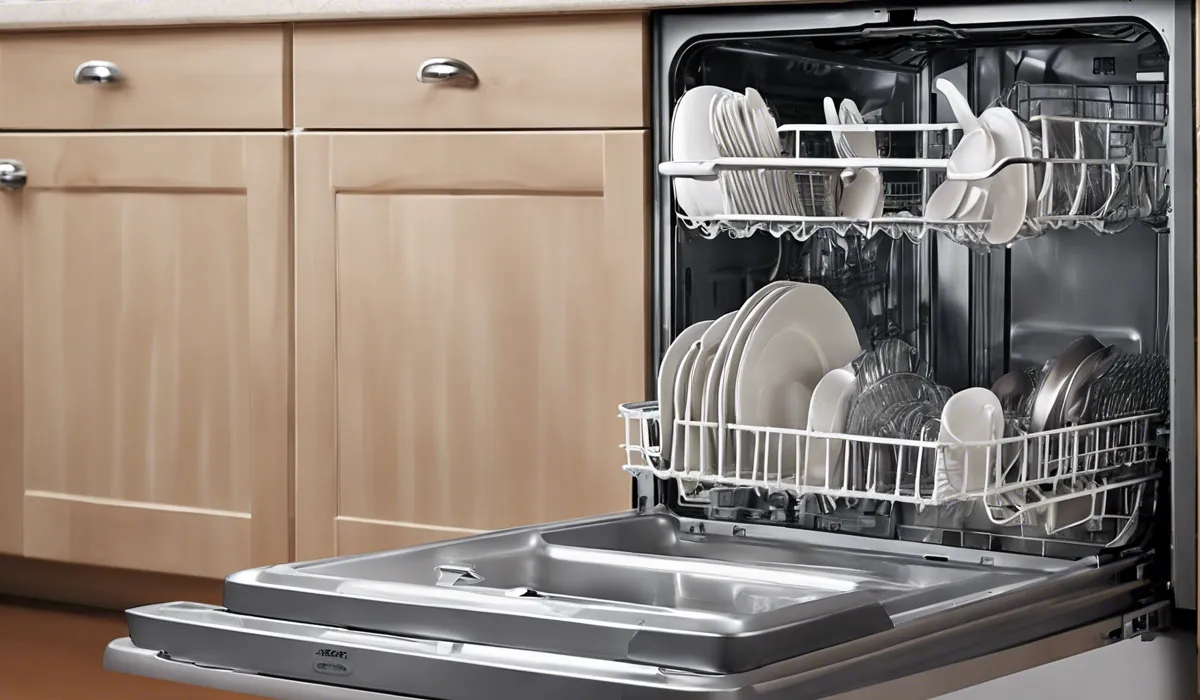Is It Bad to Not Run Your Dishwasher? The Surprising Truth
It’s not inherently bad to not run your dishwasher, but infrequent use can lead to seal drying and a musty odor inside. Running it at least once a week can prevent these issues and maintain the appliance’s functionality.
The Impact of Not Using Your Dishwasher on Appliance Health

Potential Risks for the Dishwasher’s Mechanical Parts
When you leave your dishwasher idle, the mechanical parts that are designed for regular movement can suffer. The pump and spray arms can become stuck due to the buildup of hard water minerals.
Hinges and latches may also stiffen up, leading to difficulties in opening and closing the door smoothly. It’s important to run the dishwasher periodically to ensure these components operate as intended.
The Possibility of Mold and Bacteria Growth
A dormant dishwasher provides a dark, moist environment perfect for mold and bacteria to thrive.
If you’ve ever noticed a musty smell upon opening your dishwasher, it’s likely due to this unwanted growth. Regular use helps dry out the interior and prevent these issues, much like airing out a birding tent after a damp morning outdoors.
Seals and Gaskets Drying Out and Cracking
The seals and gaskets around the dishwasher door are crucial for preventing leaks. When not in use, these rubber components can dry out, crack, and lose their elasticity.
The Debate Over Frequent Use Versus Longevity of the Appliance
Some argue that using a dishwasher frequently can lead to earlier wear and tear, while others believe that regular use can actually prolong the appliance’s life.
Environmental and Economic Considerations

The Effects of Sporadic Use on Energy and Water Consumption
Using your dishwasher infrequently may seem like a good way to save energy and water, but modern dishwashers are designed to be efficient when full. A full load uses less water than hand washing the same amount of dishes.
Comparison with Hand Washing: Efficiency and Resource Usage
Studies have shown that dishwashers use less water and energy compared to hand washing, especially when running full loads.
The key is to be mindful of running your dishwasher only when it’s full to maximize efficiency, much like optimizing a packed suitcase.
Cost Implications of Running Versus Not Running Your Dishwasher
Not using your dishwasher means you won’t incur the costs of water and electricity to run it.
However, the potential costs of repairs due to the negative impacts on appliance health can outweigh the savings. It’s a balance between short-term savings and long-term maintenance costs.
The Balance Between Appliance Maintenance and Eco-Friendliness
Maintaining your dishwasher with regular use can be seen as an eco-friendly practice because it prevents the need for early replacement.
The efficient use of resources by modern dishwashers can be environmentally beneficial compared to the alternative of frequent hand washing.
Practical Tips for Dishwasher Maintenance

Best Practices for Keeping Your Dishwasher in Good Condition
Regular cleaning of the filter, spray arms, and interior can keep your dishwasher running smoothly. Also, ensure that you use the right type of detergent and rinse aid to optimize performance and keep the machine clean.
Recommendations for How Often to Run Your Dishwasher
To prevent mechanical issues, mold growth, and seal deterioration, it is recommended to run your dishwasher at least once a week. This keeps the parts moving and the interior dry, which can prevent the buildup of unpleasant odors and maintain the appliance’s functionality.
Alternative Uses for Your Dishwasher During Periods of Infrequent Use
If you find yourself not using your dishwasher for dishes often, you can use it to clean other items like pet dishes, plastic toys, or even certain tools. Just make sure the items are dishwasher safe before doing so.
Advice on Cleaning and Deodorizing When Not in Regular Operation
Even if you’re not running your dishwasher regularly, it’s important to keep it clean. You can use a vinegar solution to deodorize and clean the interior. Periodically wiping down the seals with a damp cloth can also help prevent them from drying out and cracking.
FAQs About Not Running Your Dishwasher
Is it okay to leave my dishwasher unused for an extended period?
While it’s not inherently bad, leaving your dishwasher unused for a long time can cause the seals to dry out and a musty odor to develop inside the unit.
Can not running my dishwasher cause damage?
Infrequent use can lead to seal degradation and unpleasant smells, which could potentially damage the dishwasher over time.
How often should I run my dishwasher to keep it in good condition?
Running your dishwasher at least once a week is recommended to maintain the seals and prevent musty odors.
What can happen if I don’t run my dishwasher regularly?
Not running your dishwasher regularly can lead to the drying out of seals and the development of a musty odor inside the appliance.
Are there any maintenance tips for a dishwasher that is rarely used?
If you rarely use your dishwasher, consider running a maintenance cycle at least once a week and keeping the door slightly ajar to prevent odors and keep the seals from drying out.
Final Thoughts
While abstaining from running your dishwasher isn’t inherently harmful, it can lead to the drying out of seals and the development of a musty smell.
To avoid these problems and ensure the longevity and proper functioning of your appliance, it’s advisable to operate your dishwasher at least once a week.





